 Petzlover
Petzlover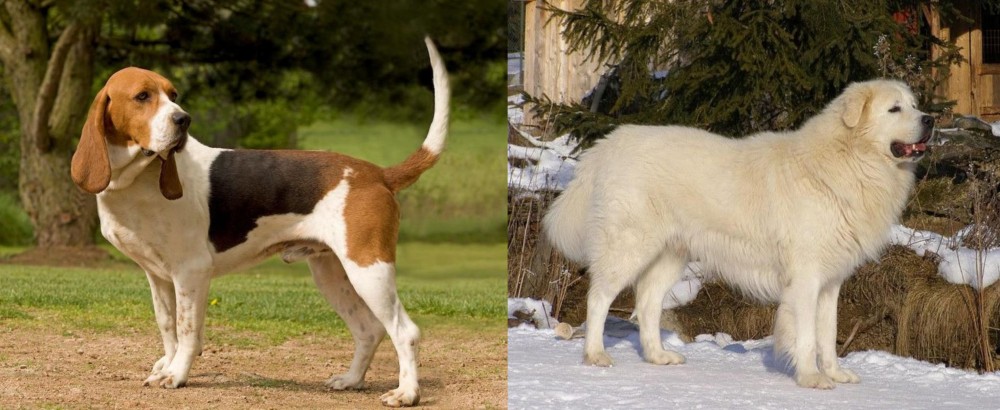 Artois Hound is originated from France but Slovak Cuvac is originated from Slovakia. Artois Hound may grow 11 cm / 4 inches shorter than Slovak Cuvac. Artois Hound may weigh 14 kg / 30 pounds lesser than Slovak Cuvac. Both Artois Hound and Slovak Cuvac has almost same life span. Artois Hound may have more litter size than Slovak Cuvac. Artois Hound requires Low Maintenance. But Slovak Cuvac requires Moderate Maintenance
Artois Hound is originated from France but Slovak Cuvac is originated from Slovakia. Artois Hound may grow 11 cm / 4 inches shorter than Slovak Cuvac. Artois Hound may weigh 14 kg / 30 pounds lesser than Slovak Cuvac. Both Artois Hound and Slovak Cuvac has almost same life span. Artois Hound may have more litter size than Slovak Cuvac. Artois Hound requires Low Maintenance. But Slovak Cuvac requires Moderate Maintenance
 The Artois Hound developed in France, essentially from the Picardy and Artois regions of northern France. The idea was to use them for the hunting of hares, fox and wild boars during the time of King Henry IV and Louis XIII. Unfortunately, with cross-breeding, the bloodline all but deteriorated and it took a couple of decades for the Artois breed to be restored.
The Artois Hound developed in France, essentially from the Picardy and Artois regions of northern France. The idea was to use them for the hunting of hares, fox and wild boars during the time of King Henry IV and Louis XIII. Unfortunately, with cross-breeding, the bloodline all but deteriorated and it took a couple of decades for the Artois breed to be restored.
After the 2nd world war, there was once again concern about the breed becoming extinct. A certain Mr.Audréchy from northern France stepped in and the breed was built up again. Today this hunting dog is essentially found in France, and a few hundred of them are registered with the Federation Cynologique Internationale (FCI), and both the FCI and the United Kennel Club (UKC) recognize the Artois Hound.
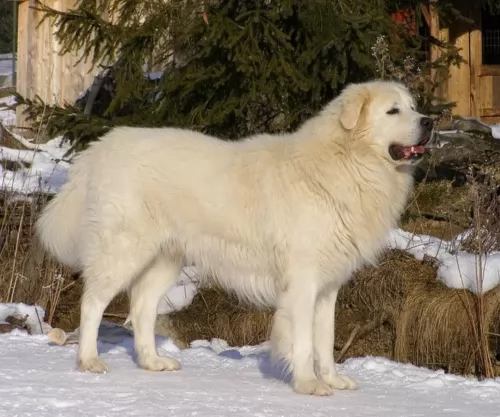 Looking quite a bit like the Pyrenean Mountain Dog, the Slovak Cuvac is a large dog that has served as a guard dog. The Slovensky Cuvac is still used on sheep farms as he isn’t afraid of wolves and bears and will take them on if needs be.
Looking quite a bit like the Pyrenean Mountain Dog, the Slovak Cuvac is a large dog that has served as a guard dog. The Slovensky Cuvac is still used on sheep farms as he isn’t afraid of wolves and bears and will take them on if needs be.
Records of this dog have been kept since the 17th century already, and when the breed started dying out, a certain Dr Antonin Hruza put in efforts to revive the dog.
The registered breeding of the Slovensky Cuvac was established in Czechoslovakia and a club for the dog was established in 1933. A written standard was established in 1964. The dog is not recognized by the Fédération Cynologique Internationale.
 Looking much like the Basset Hound and also referred to as French Artois Hound, Picard or Briquet, the muscled Artois Hound is a descendant of the Bloodhound and a rare breed.
Looking much like the Basset Hound and also referred to as French Artois Hound, Picard or Briquet, the muscled Artois Hound is a descendant of the Bloodhound and a rare breed.
The dog is well built with a large head, large eyes and large, hanging ears. He has a short coat, with the main colours being white, tan and black.
The energetic Artois Hound is a medium-to-large sized dog breed, and by FCI standard, they should be 20 inches to 22 3/4 inches tall from ground to withers.They weigh between 25 – 30kg or 55 and 65 pounds, are well muscled and strong with a short, dense coat.
These dogs are known for their endurance, making them ideal as a hunting- or walking companion. The Artois Hound is full of energy and he will require plenty of boisterous activities as well as training and socialization.
Although this is an intelligent breed, he can be stubborn. He’s a friendly character and will get on well with children, loving their energy and games. He’s amicable, and will also get on with other pets in the home too.
Artois Hounds are loyal to their human families. They’re not particularly good watchdogs though as they aren’t aggressive dogs, being social and friendly.
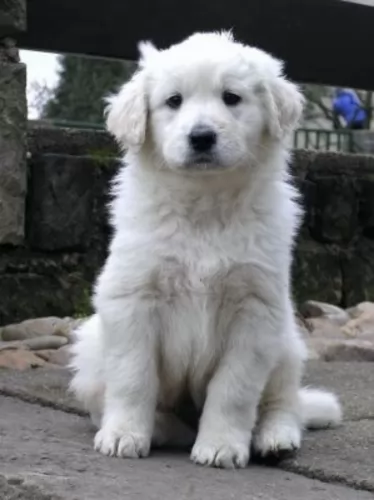 This is a large dog standing at between 59 and 70cm in height and weighing between 31 and 44kg.
This is a large dog standing at between 59 and 70cm in height and weighing between 31 and 44kg.
The neck is broad and has quite a bit of fur around it. The head is large, the eyes dark brown, the double coat is white and thick and medium length. The eyes are brown, the ears medium length and floppy and the tail long and furry.
This is a robust dog, used to spending time outdoors keeping watch over livestock. When he is invited into the home, he is gentle and well behaved, more so when he has been trained and socialized.
He is loving and loyal towards his human family and will get on well with children in the home. He isn’t the brightest dog but you can still have him trained.
 Your Artois is an ideal family pet when you provide him with the love and attention that any member of a family deserves. Buy your Artois from a reputable breeder so that all the excellent characteristics of this lively breed are found in your 4-legged friend.
Your Artois is an ideal family pet when you provide him with the love and attention that any member of a family deserves. Buy your Artois from a reputable breeder so that all the excellent characteristics of this lively breed are found in your 4-legged friend.
The Artois is just waiting to be your devoted companion and will promise unconditional friendship in exchange for quality food, veterinary care, exercise and attention. To make sure you never lose your pet, outfit him with a collar and ID tag so that should he become lost, the chances are far better that he’ll be found.
A dog isn’t a human and you want to always make sure that you’re reasonable with what to expect from him. Most little problems with your wonderful friend can be solved with kindness, compassion and patience.
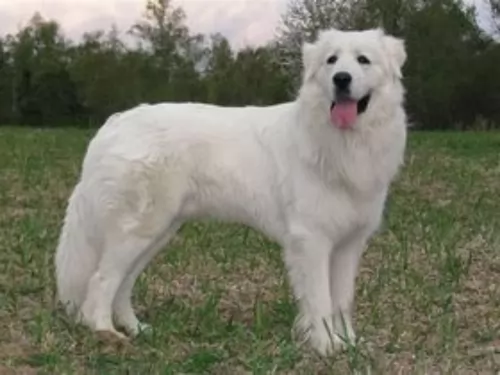 Your playful Slovak Cuvac is an affectionate dog, wanting nothing more than to be totally involved in his family’s life.
Your playful Slovak Cuvac is an affectionate dog, wanting nothing more than to be totally involved in his family’s life.
He is social and loving and also makes an excellent watchdog. He’s a big dog so think carefully before you bring him into your home. Many dog owners like the look of a big dog and forget that it costs a lot of money to feed a big dog and to pay for vet fees.
This big dog is wanting to be part of your family and not just to be discarded when you find that he is costing you too much.
 There are no known health problems that come as specific to the Artois Hound. The health problems that do develop are common ailments that can be found in most other dog breeds too.
There are no known health problems that come as specific to the Artois Hound. The health problems that do develop are common ailments that can be found in most other dog breeds too.
Your Artois Hound will still need to visit the vet as a puppy for a thorough check-up as well as vaccinations and for any health issues he may have.
check for bad breath problems. Dental plaque can cause a nasty odour that will require dental treatment from a professional. The dog’s teeth can be maintained by brushing the teeth regularly with special canine toothpaste- and brush. However your dog’s bad breath could be indicative of other health problems such as diabetes.
Parasites, fleas, ticks and worms – there are many new treatments to manage these pests and your veterinarian will guide you towards a treatment for your pet.
if your pet is exposed to mosquitoes often, the insect carries the worm from dog to dog. Speak to your vet about treatment, more so when you live in a warm, wet area where mosquitoes thrive.
Your Artois Hound puppy will have to be vaccinated with a combo vaccine to protect him from hepatitis, distemper, leptospirosis, parvovirus and parainfluenza. They should have received their first immunizations by 8 weeks of age. Speak to your vet about rabies shots as well.
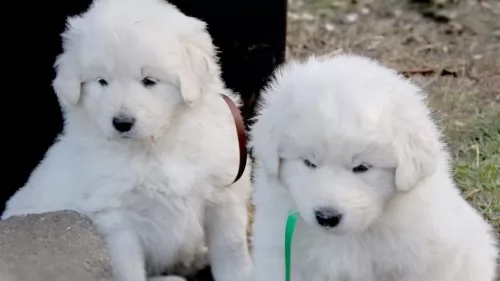 This is a healthy dog breed, but as with many large dogs, hip dysplasia is a threat. Hip dysplasia is always reason for concern as the condition can reduce a dog’s quality of life.
This is a healthy dog breed, but as with many large dogs, hip dysplasia is a threat. Hip dysplasia is always reason for concern as the condition can reduce a dog’s quality of life.
It is distressing seeing your once active pet becoming reluctant to play and move around.
Canine hip dysplasia is a common skeletal condition. It can strike any size dog but is more prevalent with large dogs. The ball and socket of the hip doesn’t fit properly and deterioration sets in resulting in loss of function of the joint.
You will need to get your dog to the vet who will perform a physical exam and discuss treatments to alleviate the pain your dog can experience.
 The beauty with the Artois Hound is that he is low-maintenance and he will only require the basic tender loving care to keep him happy and healthy.
The beauty with the Artois Hound is that he is low-maintenance and he will only require the basic tender loving care to keep him happy and healthy.
The Artois isn’t a high maintenance dog and the low-shedding, short-haired coat will required a good brush a couple of times a week to remove loose hairs. The dog only requires a bath when absolutely necessary as bathing dries out natural oils in the skin. Never use a human shampoo – only a proper dog shampoo.
Artois Hound puppies up to 12 weeks will need to be fed every 6 hours. Puppies of 6 months and older can have 2 bowls of food, and from one year of age, one bowl of food may be adequate. It’s an individual choice as 2 smaller meals a day can also suffice. Speak to your vet about premium-quality dry- and wet foods as well as about making your own dog food. You want to ensure the foods eliminate mineral and vitamin deficiencies. Ensure there is ALWAYS a bowl of fresh, cool water within your dog’s reach.
This is a hunting dog so he will need plenty of exercise. Without regular exercise, a dog like the Artois becomes frustrated and destructive. Your Artois is your 4-legged family member, and according to age and individual traits will benefit from throwing ball games, pulling on ropes and running while you cycle. The cherry on the top is that you benefit from the exercise too!
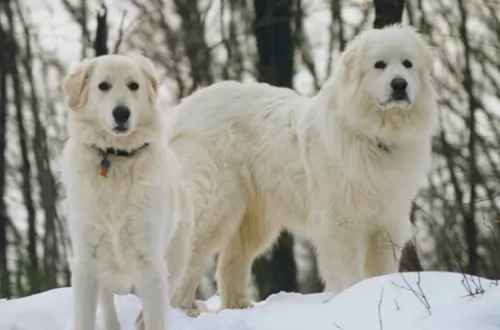 ◆The thick white hair will require regular grooming to keep it free from burrs and dirt. He sheds so this brushing will help him to look more groomed.
◆The thick white hair will require regular grooming to keep it free from burrs and dirt. He sheds so this brushing will help him to look more groomed.
◆The nails should be trimmed regularly and the ears too should be checked for redness and infection. You’ll need to look inside his mouth too as a rotting tooth can cause havoc within his body. A rotten tooth can also cause him tremendous pain and he has no way of telling you this.
◆Have your pet spayed or neutered if you don’t want any puppies. This is better for your dog’s health in the long run too.
◆Your Slovak Cuvac is going to need a lot of exercise as they have always been used to roaming the mountains watching over livestock.
◆This is a big dog so if you buy commercially manufactured food, make sure its for large, energetic dogs. There are good commercially manufactured dog foods on the market – just make sure you buy the best one for your pet to enhance health and longevity.
Try and give him some home made food too. Healthy food which won’t jeopardise his digestion is boiled chicken, brown rice or pasta and spinach, sweet potatoes and carrots. These can all be chopped up and small portions mixed into the dry kibble twice a week as a treat.
Try and include some raw meat occasionally. Your dog will thank you for not giving him exotic people foods which can do lots of harm. Ensure there is always a bowl of fresh, cool water within his reach.